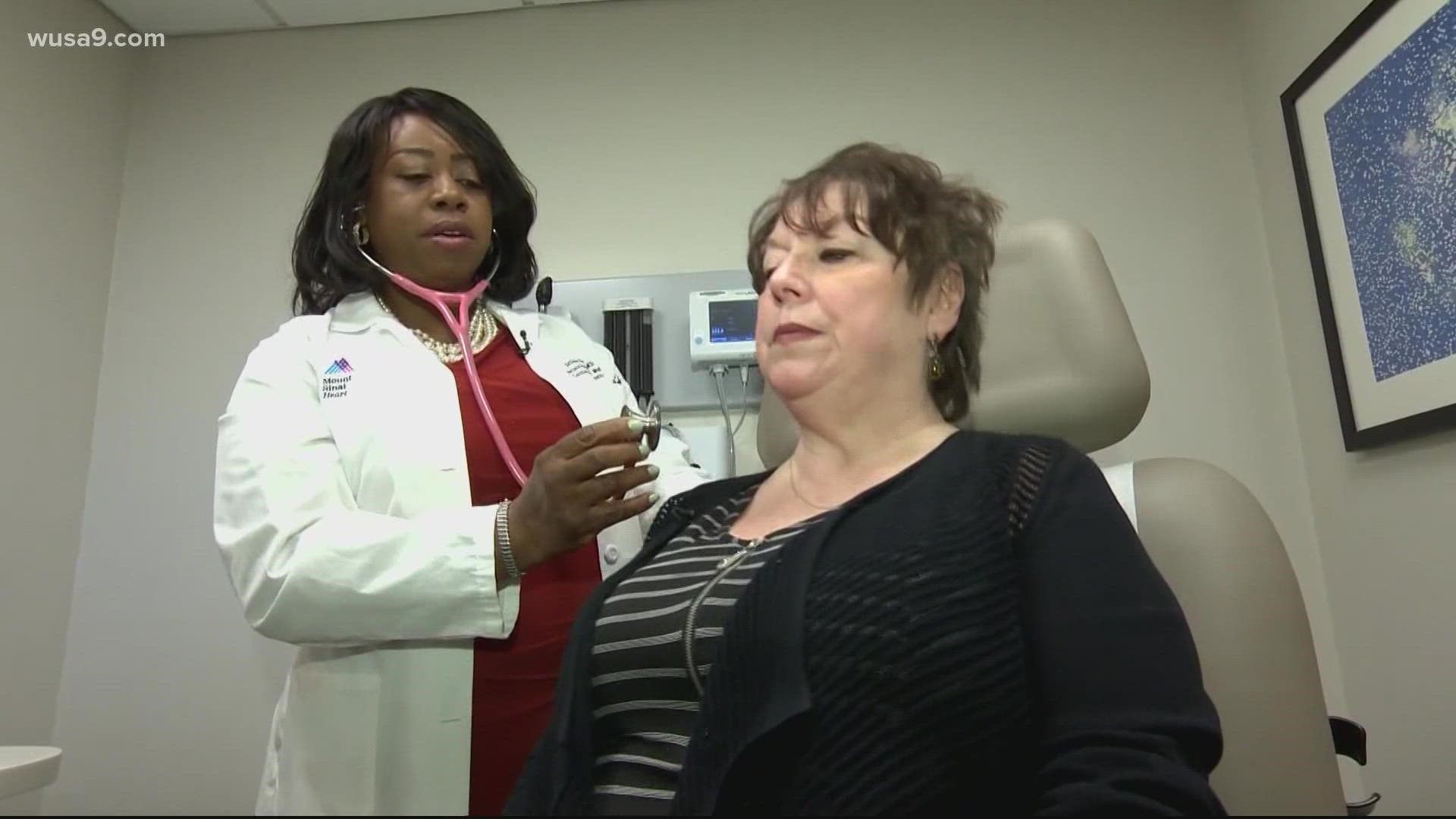WASHINGTON — February is American Heart Month and it’s a great time to prioritize how we should take care of our hearts.
While many of the short-term impacts of COVID-19, including COVID long-hauler and myocarditis, have been documented, there is still a lot we don’t know about long-term impacts.
“There are a few conditions that are directly related to a COVID infection. You’ve heard about long-COVID and that is your body's cardiovascular system responding [in] a funny way to a COVID infection. And that funny way you can last for six to 12 months. We also heard about myocarditis, which is a little swelling of the heart muscle that happens after or during a coronavirus infection,” said Ameya Kulkarni, a cardiologist with Kaiser Permanente.
Doctor Ameya Kulkarni said another impact of the pandemic is an increase in blood pressure.
“On average, patient’s blood pressure in the United States has gone up versus two years ago and it’s disproportionately affecting women,” said Ameya Kulkarni, MD.
Experts said there are a number of reasons the pandemic could be contributing to an increase in blood pressure.
“There are a variety of reasons for this. We are attending to so many more things at once than we ever were. Stress levels are higher than they’ve ever been. Most of us are less active than we were. And are eating differently,” said Ameya Kulkarni, MD.
The American Heart Association released a new $10 million research initiative, examining the deadly coronavirus' impact on the cardiovascular system.
“While COVID-19 was initially thought to be a disease only of the respiratory system, it quickly became evident that its effects were not limited to any one system of the body. Cardiovascular complications in aggregate have commonly been reported among COVID-19 patients and most often include blood clots, heart inflammation known as myocarditis, disruption of the heart rhythm, heart failure and heart attacks,” said Svati H. Shah, M.D. in a news release.
Svati H. Shah also explained “frequently reported symptoms in patients who have effects long after their initial COVID-19 infection have cardiovascular-related aspects including fatigue, chest pain and shortness of breath. The patients also report effects on the central nervous system, including both psychological effects such as anxiety and depression, as well as cognitive effects such as confusion and deficits of memory and concentration. But, we have a lot still to learn through rigorous research to understand Long COVID.”
The American Heart Association wants to remind you of a few simple steps you can take to monitor your heart health.
The five key personal health numbers that help determine risk for heart disease include total cholesterol, HDL (good) cholesterol, blood pressure, blood sugar and body mass index.
Experts with American Heart Association said even modest changes to diet and lifestyle can lower risk by as much as 80%.
The American Heart Association recommends that adult women get at least 150 minutes per week of moderate activity or 75 minutes of vigorous activity.

